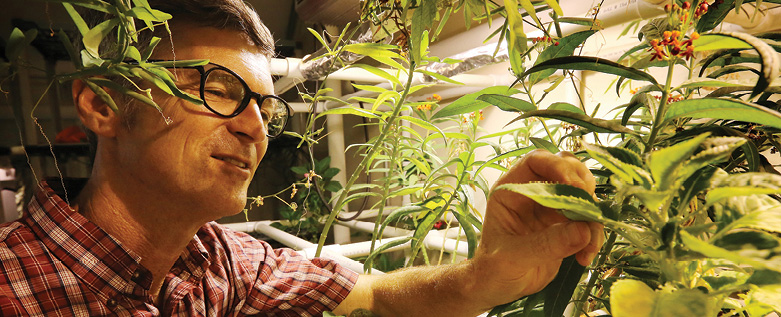Baylor professors’ research targets neglected tropical diseases

More than 3 billion people worldwide are at risk from tropical diseases that spread easily and contribute to a repeated cycle of poverty in nations across the globe. Thousands of miles away from the epicenters of these diseases, in labs here at Baylor, those 3 billion people have allies in Baylor professors and their students, who right now are researching innovative methods for stopping the spread of these diseases. Vaccines, drugs and even plants are their weapons in the fight.
The diseases the Baylor research is targeting — malaria, lymphatic filariasis, dengue and Chagas disease — are known collectively under the heading of neglected tropical diseases, maladies prevalent in 100+ countries worldwide. Dr. Cheolho Sim, assistant professor of biology, says that while the diseases are one of this generation’s most significant challenges, he believes “this generation can solve the crisis.”
[Read more about this research in this feature from the Summer 2014 issue of Baylor Magazine.]
That conviction is leading Sim and fellow professors Dr. Chris Kearney and Dr. Mary Lynn Trawick to combat “vector-borne diseases” — those spread by mosquitos and other insects — by stopping the very creatures that carry them. Each is applying their own unique discipline to find innovative ways to stop the bugs from spreading disease, from targeted vaccines and pesticides (Sim), to creating nectar that is toxic to only mosquitos (Kearney, pictured above), to work on a drug that blocks an enzyme in the development of a particular parasitic insect (Trawick).
Pro Futuris, Baylor’s strategic vision, puts forth that “we have responsibility to care for our health and wellbeing and that of others.” Drs. Sim, Kearney and Trawick are doing just that — potentially providing billions of people around the world with simple ways to have a new lease on life and improve the global community in myriad ways in the process—and providing their students with the chance to witness and be a part of something that could change the world.
Sic ’em, Baylor researchers!

